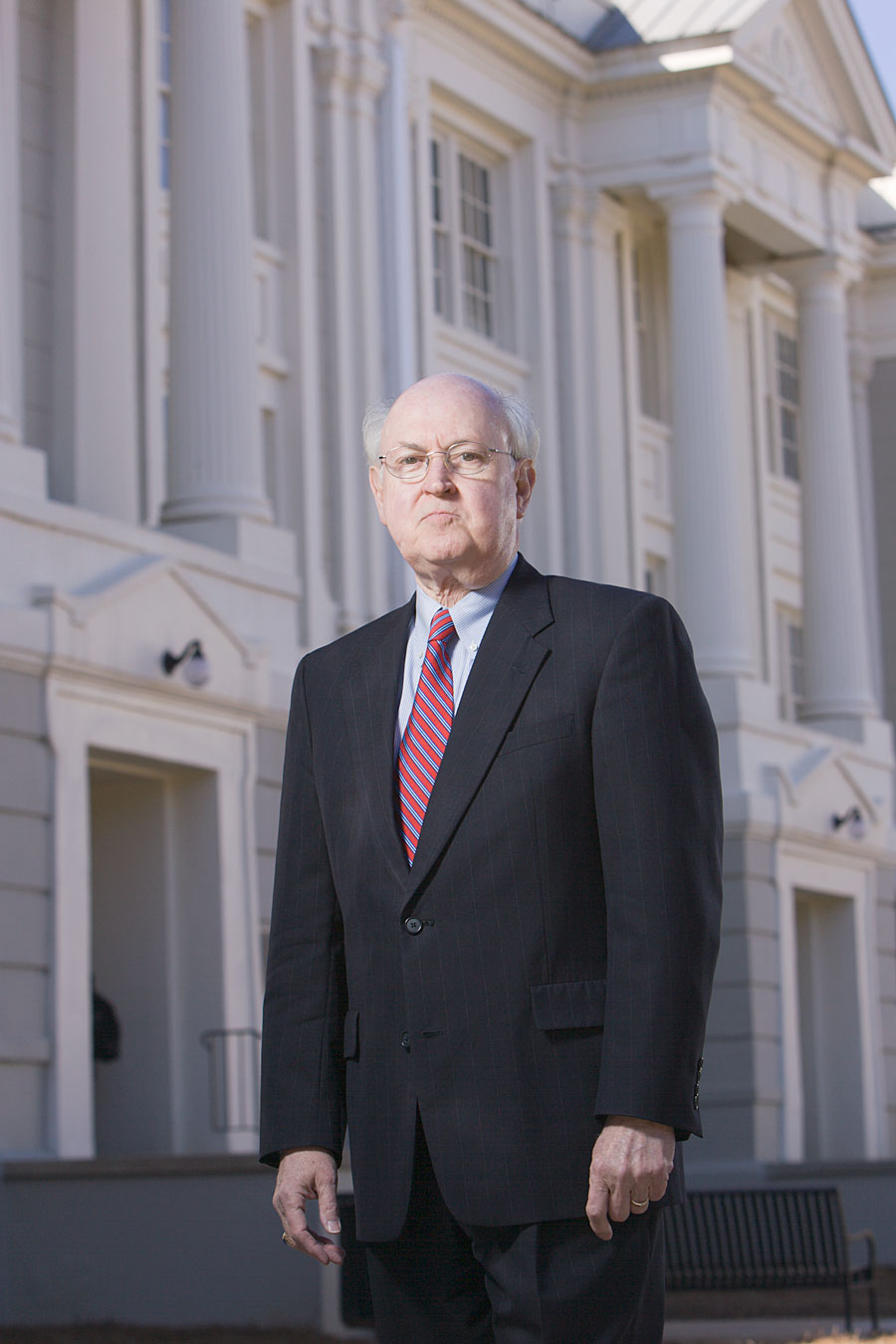Columns: What were your primary goals as the school’s first dean?
Lauth: The immediate goals were to establish two new academic departments within the school, expand the faculty, establish new degree programs, move into the renovated Candler Hall, establish an administrative infrastructure for the school, build an external advisory board to help with fundraising and establishing our new identity, and to do all of this while maintaining the high quality of research and instruction for which our faculty always have been known.
Columns: Have you met any of the short-term goals you set?
Lauth: With the strong support of the university’s central administration, we have met all of them. Our departments have done quite a bit of hiring during the past five years. I am very pleased with the caliber of new faculty members we have been able to recruit at entry- and senior-level positions.
In 2003, we began the undergraduate degree in international affairs. With more than 700 students currently enrolled in that major, the line from the movie Field of Dreams seems appropriate. “If you build it, they will come.” I also should note that both of this year’s Rhodes Scholars have international affairs majors. Our longstanding undergraduate program in political science continues to be strong. Combined, we have more than 1,600 undergraduate students. It was important to me that in building the school we maintained the quality of our established programs. The master of public administration degree program is ranked third in the nation by U.S. News&World Report and first among public universities. Enrollment has continued to grow, as has the quality of the program’s students.
Columns: What do you consider SPIA’s strengths to be?
Lauth: In addition to that which I’ve already mentioned, two of our most visible strengths are in research and teaching. Our public administration faculty is one of the most productive research faculties in the nation. The department’s Ph.D. students are winning national dissertation awards and achieving excellent placements at research universities. Our Center for International Trade and Security is renowned for policy research and training to control the spread of weapons of mass destruction and weapons materials.
Our undergraduate enrollments in international affairs and political science can be directly linked to the quality of our teachers. Some of the best teachers on campus are in these departments—four SPIA faculty members are Meigs Distinguished Teaching Professors, and three others have received the Russell Undergraduate Teaching Award.
Columns: Are there areas for improvement?
Lauth: Of course. One of my top fundraising priorities is to increase endowed funding for graduate assistantships. This will enable us to compete more effectively for the best and brightest graduate students studying in our disciplines.
Columns: What are the school’s most important long-term goals?
Lauth: In 2003, our school moved into the wonderfully renovated Candler Hall, which serves as the home of the dean’s office, the department of international affairs and undergraduate student services. It has served us very well from day one. However, a new out-of-the-ground building would enable us to bring all of our academic departments, research centers and student services into one location. Another long-term objective is the development of an area studies center, perhaps for Middle East studies. We continue to look for funding opportunities for these long-term objectives.
Columns: What is the most pressing issue facing the School of Public and International Affairs?
Lauth: Establishing our school’s identity with our alumni who earned degrees in political science before the existence of SPIA has presented a significant challenge for our fundraising efforts. We are working hard to overcome this problem. As more individuals graduate from SPIA, the severity of this challenge will continue to diminish.
Columns: What do you most enjoy about your role as dean?
Lauth: It is difficult to say what I like best about being dean. I have enjoyed the opportunity, with my colleagues, to build our school and to work with our Board of Visitors on fundraising and alumni relations. There is nothing about it that I don’t like, except perhaps that administration and external relations do not leave much time for teaching or research—although I have managed to do a little of each. This semester, I am teaching an undergraduate course, my first course in three years. As dean, I have continued to supervise independent study for doctoral students and have directed two completed Ph.D. dissertations. I like it all.


